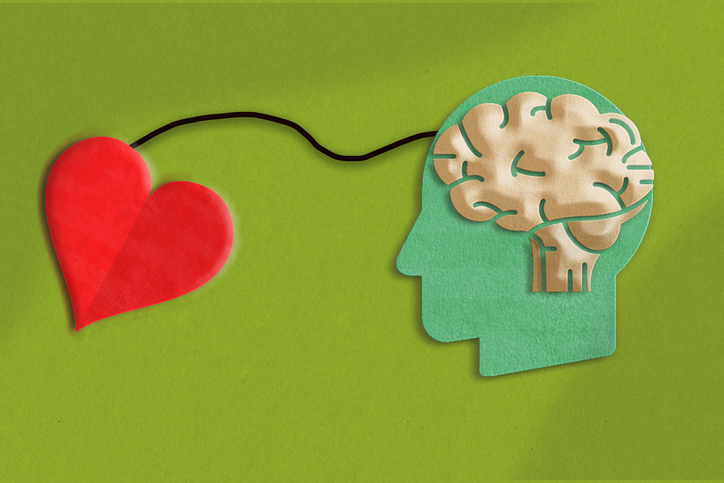I worked as an FBI counterintelligence agent for twenty years and loved the challenge of being a spy catcher. However, when I was offered the position of spokesperson for the FBI in Northern California, I jumped at the chance. It felt like the next step in professional development.

I felt empowered because I could draw the media’s attention to my colleagues’ good work and how they kept the public safe. Nothing irritates those in the trenches as much as watching the ridiculous portrayal of the FBI in movies, TV and books. No, FBI agents are not rogue supervillains who operate above the law and abuse the civil rights of citizens, nor are they superheroes who beat the bad guys into submission.
The FBI operates within the laws of the federal government, with judicial oversight. As the spokesperson, I could give people a reality check on how the FBI does its job. I didn’t count on two things. First, the media has little interest in positive news stories. Instead, they prefer stories that point out how FBI agents could have done better or how they messed up. Second, most of my colleagues did not yet desire to share their successes with the media. Many resisted my attempts to get them interviewed about their cases, and a few went so far as to report me to the special agent in charge when they felt I pushed too hard.
Ugh.
The stress I experienced 24/7 for four years came from reporters’ deadlines and their constant requests for more information; the burnout I experienced, however, came from the lack of interest by my colleagues.
Stress vs. burnout
Stress and burnout are not the same thing. Stress is a normal human reaction that happens to everyone. The human body is designed to experience stress and react to it. When you experience changes or challenges, your body produces physical and mental responses. In moderate doses, stress responses help your body adjust to new situations. Stress can be positive, keeping us alert, motivated and ready to avoid danger. It becomes a problem when stressors continue without relief or periods of relaxation.
While stress can lead to burnout, burnout itself is a different beast. Exhaustion is the first sign, followed by a desire to distance ourselves from work and a general malaise that often looks like depression. However, research indicates that burnout is work-related, an essential distinction from depression.
Burnout can imply a person is questioning the significance and impact of their work. Depression, on the other hand, can leave a person doubting their relevance. It is possible to handle the onslaught of long hours, high pressure and one crisis after another before it leads to burnout. The key is tapping into our emotional intelligence. While you may not be able to control the dysfunctional environment in which you work, you can control how you respond. Without sweeping institutional and industry changes, professionals must look inward to ensure their personal goals and values are pursued daily despite obstacles.
Emotional intelligence is a critical skill that can help you become more resilient and effective in the face of unprecedented stress and burnout. Here’s how.
1. Recognize the signs
Psychologist and author Daniel Goleman reminds us that the first step of emotional intelligence is to recognize our emotions as they occur accurately. Recognizing honest feelings is critical when burnout is nipping at our heels. Further research tells us that this skill can be learned and developed.
After four years as spokesperson, I was emotionally exhausted from the 24/7 news cycle, but that kind of stress happens in the best professions. What troubled me was the growing cynicism toward my job and colleagues — each day coughed up this ugly question: Why bother?
That question held me by the throat, and I could sense it weighing me down with each news story and the indifference I felt from the agents who didn’t want to waste their time talking to me or the media — they just wanted to get on with their jobs. I couldn’t blame them, but at the same time, I was discouraged by their lack of enthusiasm for sharing their stories with the rest of the world to present the FBI through the lens of truth and transparency.
Cynicism is a way we protect ourselves. It’s usually triggered when we feel anger, and because anger is not an acceptable emotion in most professional settings, we allow it to fester. It can slowly spread to other areas if we grow cynical toward one thing. When we recognize a cynical attitude creeping into our thoughts, we must be resilient, so we whip the beast back into its dark corner.
How to make it work for you: Perform an emotional check-up. Professionals like physicians are rewarded for their intellect, so it’s no surprise that you value the brain that got you where you are. Be careful not to ignore or suppress your emotions because they are inconvenient or embarrassing. If you are resilient, you can admit an uncomfortable or unprofessional feeling by recognizing it for what it is.
Label the emotion for what it is, not what you wish it were. Keep the label to one or two words. When you engage in inner dialogue about the emotion, you give it legs to run further. Then, consider why you are feeling that way. Resilient people are strong enough to be honest about their feelings and are not afraid to dig down to uncover the roots of that emotion.
2. Manage emotions
The way we view our situation sets off an alarm in the brain. The nervous system is programmed biologically to release hormones that prepare us for fight or flight. Emotional intelligence and resilience are closely linked. People with high levels of emotional intelligence tend to be more resilient because they can navigate challenging situations and build robust support systems.
Here are some ways that emotional intelligence can help you become more resilient:
- Self-awareness. Emotional intelligence can help you identify your emotions and understand how they affect your thoughts and behavior. This can help you recognize when you’re feeling overwhelmed or stressed and take steps to manage those feelings.
- Empathy. Emotional intelligence can help you understand the emotions of others and respond in a supportive way. This can help you build strong relationships with others, which is an integral part of resilience.
- Social adaptability. Emotional intelligence can help you navigate social situations and build strong support systems. This can help you find the necessary resources to cope with difficult situations.
- Problem-solving. Emotional intelligence is a critical element of mental toughness. Mental toughness gives you the clarity you need so your emotions do not sabotage you.
- Stress management. Emotional intelligence can help you manage stress by recognizing when you’re feeling overwhelmed and taking steps to manage those feelings. This can help you stay calm and focused in difficult situations. Research suggests that emotional intelligence produces superior coping skills, helps people deal with chronic stress and prevents burnout.
How to make it work for you:
- Reevaluate your perspective of the situation. Do you view a particular situation as a threat to something you value? Or do you view it as a problem to be solved? Changing your perspective on whether you’re experiencing distress or eustress can have an eye-opening effect on your ability to bring your stress level down.
- Change the mindset. Change the behavior. Change the outcome. What once felt like stress can now feel like good stress; it motivates you to think of it as a problem to be solved.
LaRae Quy was an FBI undercover and counterintelligence agent for 24 years, during which she exposed and recruited foreign spies and developed the mental toughness to survive in environments of risk, uncertainty and deception. Find out if you’re mentally tough with Quy’s FREE, evidence-based Mental Toughness Assessment. Quy’s new book is “Secrets of a Strong Mind (2nd edition): How To Build Inner Strength To Overcome Life’s Obstacles.” Follow her on Twitter, Facebook, Instagram and LinkedIn.
Opinions expressed by SmartBrief contributors are their own.
_______________________________
Subscribe to SmartBrief’s FREE email newsletter on leadership. It’s among SmartBrief’s more than 250 industry-focused newsletters.
